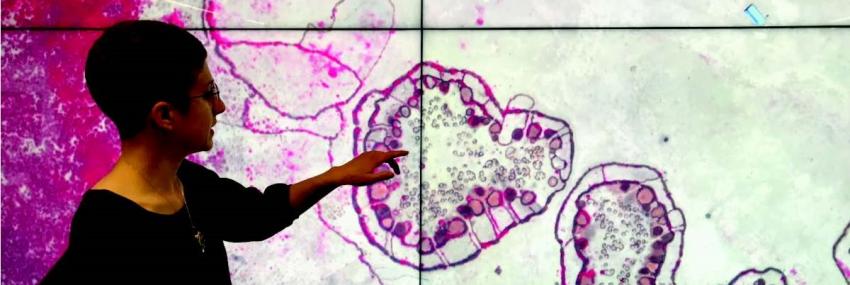Michelle Alexopoulos is a professor of economics at the University of Toronto, a fellow of St. Michael’s College, and a qualified expert witness in the areas of technical change, macroeconomic, and applied econometrics. She has authored numerous papers on business cycles, technical change, labor markets, and productivity. Her recent research has focused on creating and analyzing new measures of technical and scientific change for developed economies based on publications and the patterns of library collections.
Bryce J. Dietrich is a research fellow at the Shorenstein Center on Media, Politics, and Public Policy in Harvard’s John F. Kennedy School of Government. He is also an assistant professor of Social Science Informatics at the University of Iowa. His grant-funded research uses novel quantitative and machine learning methods to analyze non-verbal cues in sources such as audio and video data, aiming to make high-performance computing more accessible to political science and the social sciences more broadly.
Casey Davis Kaufman is associate director of the WGBH Media Library and Archives. She manages grant projects and initiatives, including the American Archive of Public Broadcasting, a collaboration between WGBH and the Library of Congress. Kaufman also sits on the board of directors of the Association of Moving Image Archivists, and is the founder of ProjectARCC, a community of archivists taking action on climate change.
Barbara A. Frey directs the Human Rights Program at the University of Minnesota, overseeing interdisciplinary teaching, research, and programmatic activities for human rights degree programs. Her research interests include gun violence and human rights; disappearances and impunity in Mexico; immigration; and human rights advocacy. Frey co-edited the 2018 volume Mexico’s Human Rights Crisis (Penn Press).
Margaret C. Levenstein is the director of the Inter-university Consortium for Political and Social Research (ICPSR). She is also research professor for the Survey Research Center, Institute for Social Research, and adjunct professor of Business Economics and Public Policy, Ross School of Business at the University of Michigan. Her research and teaching interests include industrial organization, competition policy, business history, data confidentiality protection, and the improvement of economic statistics.
Alondra Nelson is professor of sociology at Columbia University, where she was the inaugural dean of social science for the Faculty of Arts and Sciences. She is president of the Social Science Research Council and serves on numerous boards, including the Data & Society Research Institute, and Center for Research Libraries. Her interdisciplinary research explores how social groups reject, challenge, engage and, in some instances, adopt and mobilize conceptualizations of race, ethnicity, and gender derived from scientific and technical domains.
Jason Rhody directs the Social Science Research Council (SSRC) Digital Culture program, which focuses on scholarly communication, digital methods, and transparency and access in social science research. Previously, he served as senior program officer at the National Endowment for the Humanities (NEH), where he helped create the Office of Digital Humanities (ODH). In that role, he developed grant programs that enabled scholars, librarians, and archivists to harness emerging technologies to advance humanities research and foster collaboration across international and disciplinary boundaries.

